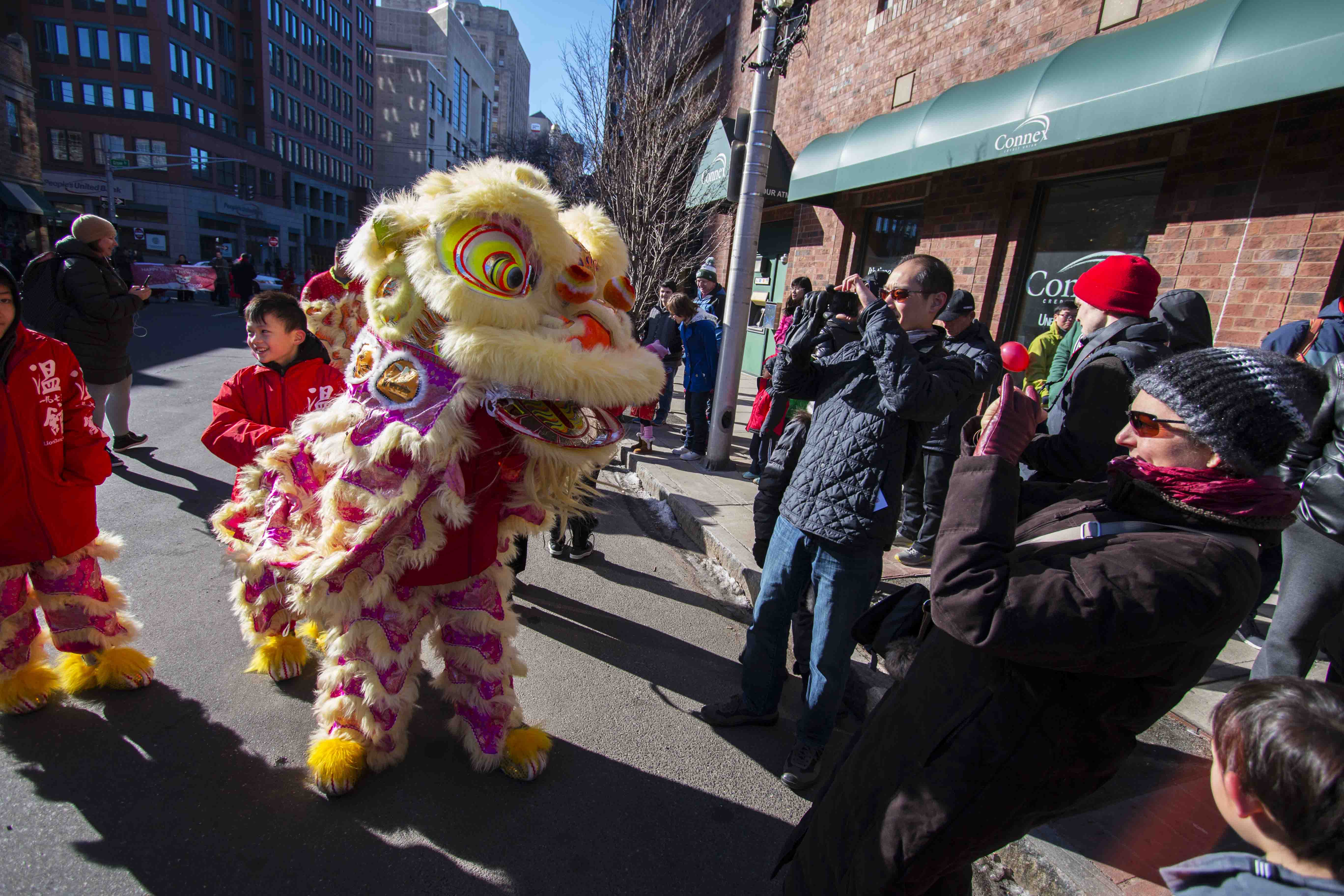
Lunarfest, a Chinese New Year celebration held on Saturday, engaged the New Haven community in activities including a parade, craft-making booths and performances.
All activities were free of charge, and hundreds of people joined together to celebrate the year of the rooster. The day started at 10 a.m. with a lion dance parade by the Wan Chi Ming Hung Gar Institute’s lion dance troupe down Whitney Ave. Attendees ran up to the lion and placed red envelopes filled with small amounts of money in its mouth, an act that according to Chinese tradition, brings good luck in the new year. The festival was sponsored by the Yale-China Association, the New Haven Museum and the Council on East Asian Studies at Yale.
“[The lion dance] was really quite spectacular,” said Samantha Wong, an attendee. “You might be able to see it in Chinatown, in New York, and we saw one in Los Angeles. But here in New Haven, it’s relatively not such a big Chinese community. I mean, that you’d be able to see this is surprising.”
After opening remarks at the end of the parade by David Youtz, the executive director of the Yale-China Association, Mayor Toni Harp and the Chinese Consul General Zhang Qiyue also spoke.
Qiyue talked about how the rooster, which symbolizes hard work, relates to how the U.S. and China need to work harder in building a better relationship.
“I think we all have to work together,” Qiyue said. “And we can all start with social activities, arts, music, because that’s how people get to know each other.”
The speeches were followed by multiple singing and dance performances, and in the afternoon a collection of events took place at the New Haven Museum, Luce Hall and the Yale-China Association. These events included craft-making, storytelling, a martial arts demonstration, Chinese poetry reading and Chinese opera.
There were Chinese and non-Chinese attendees alike at Lunarfest. Sheng Ding, who was from China and now lives in New Haven, brought his daughter to the festival.
“It’s a good opportunity, especially for these little kids. They grow up here but it’s a good chance to let them learn some traditional Chinese culture,” Ding said. “And also even for us, we were born in China, but we haven’t gone back for a while and it’s very warmful to see all these familiar things.”
Even those without a Chinese background enjoyed the events. Johanna Epperson, a local resident, said she has been coming to Lunarfest for the past four years. While not Chinese herself, Epperson said she loves learning about Chinese culture and said she wished that Lunarfest had been better advertised.
Epperson said she received an email about Lunarfest but suggested there could have been more advertising, in the form of banners downtown, for example. She also thought it would be beneficial for local shops if more of them were open during the parade.
“It’s hard to get people to try it,” Epperson said. “There’s a lot of people I saw as I was walking here, just in restaurants, who aren’t aware this is happening.”
Since it was first held six years ago, Lunarfest has grown considerably.
Wong and her two children have come to Lunarfest for the past few years but said this edition marked the first time they planned to attend. In previous years, they had happened on the event only by chance.
Wong retold of one year when, after picking up her children from piano lessons on Audubon Street, the family noticed the parade and decided to join in.
“They are making it bigger and bigger because the mayor is speaking now,” Wong said. “I don’t remember last year something like that.”
Michelle Crowley, the senior development officer for the Yale-China Association, expressed plans to grow Lunarfest even further in the coming years. By the event’s 10th edition, she said, organizers would like to have 5,000 residents attend and have “the whole city” involved.
Crowley added that she would like to better incorporate the surrounding businesses into the event. For example, surrounding businesses could offer discounts during Lunarfest and get involved in the celebration, she said.
“People can come get lunch and be in the neighborhood,” Crowley said. “It should be an economic boost as well as a celebration for the new year.”
The Yale-China Association was founded in 1901.







